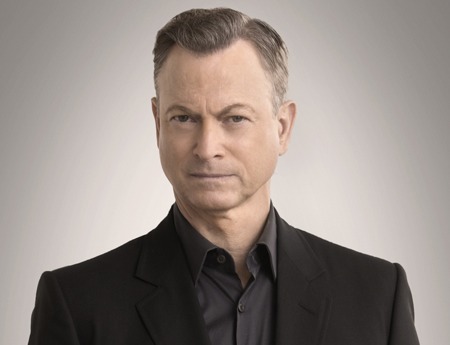The Rise of the Mega-Multitaskers

The smarter way to stay on top of broadcasting and cable industry. Sign up below
You are now subscribed
Your newsletter sign-up was successful
Related: ‘Paradise’ Found: Hallmark Preps Selleck Debut
Running a series might just be the most demanding job in television, the executive producer putting out more fires on the set and in the writers’ room in a day than some firefighters do all month. Yet that harried lifestyle has not stopped some truly ambitious showrunners from taking on not only a second show, but a third, or fourth, or even a fifth. While such mega-multitasking was in vogue back in the days of Norman Lear and Stephen J. Cannell, the crushing demand for scripted originals has spelled a return of the producer with several shows under his or her watch.
To wit: Julie Plec is executive producer and showrunner on The Vampire Diaries, The Originals and midseason debutant Containment. Shonda Rhimes has her own night on ABC, and Greg Berlanti seemingly has a hand in half the current rookie crop. His Twitter profile reads: “Currently worrying about: #Arrow, #TheFlash, #MysteriesofLaura, #Blindspot, #Supergirl, #LegendsofTomorrow.”
Plec says it’s the way of the world today. “You pat yourself on the back until you see how many others are doing it too,” she says. “There’s not as much rarity to it as there used to be.”
Catch Fire, and Don’t Halt
Creative types offer a range of reasons why the trend has returned, including a rise in independent production outfits and a favorable run of producer-studio relations. And in an era of 400-plus scripted originals, the standout stuff is coming not only from broadcast and cable, but with Netflix, Amazon Studios and Hulu increasing their slate of compelling originals. “There’s so much going on in television,” says Melissa Bernstein, executive producer on Better Call Saul, Halt and Catch Fire and Rectify, along with a new series for Hulu. “It’s created a situation where a lot of us are multitasking.”
The challenge, like a star chef opening branches in Dubai, Vegas and other hotspots, is maintaining quality even when you’re not in the kitchen. The key word one hears over and over from the bustling exec producers is delegate. Erica Messner, showrunner on Criminal Minds, is mastering the art of hiring, nurturing and managing as she builds its successor, Criminal Minds: Beyond Borders. “You have to hire really good people who share your vision and have your back,” she says. “Then trust it’s all going to be OK.”
The smarter way to stay on top of broadcasting and cable industry. Sign up below
Besides becoming a master of time management, other factors help ensure that adding a second or third show does not necessarily double and triple the workload. Staggering the creation process—having one program in the writing stage while another is in post-production—helps a showrunner cover more ground. So does shooting shows in the same city, such as Plec filming Containment and Vampire Diaries in Atlanta.
Whether they’re concerned with retaining the quality of their show, or their own quality of life, some hit producers are happy to stick with a lone hit. Phil Rosenthal, creator of Everybody Loves Raymond, recalls taking a massive sum of money to launch a new show, then talking his way into a few more seasons of Raymond, and finally giving back the cash and scrapping expansion plans. “I don’t think I’m built that way,” says Rosenthal, now host/creator of I’ll Have What Phil’s Having on PBS. “If I had two or three girlfriends, how good could I be to any one of them?”
But in this age of networks feeling tremendous pressure to mine a hit, they typically prefer to load up a hot producer with yet another concept, rather than take a chance on a less proven talent. “If you find someone who’s successful, you assume they have the magic touch,” says Lee Goldberg, former showrunner and coauthor of Successful Television Writing. “You give them multiple shows, until they start bombing. Then you stop giving them multiple shows.”
So fickle is the business, and so rare is a hot streak, that few producers in a position to expand would say no to a project that they feel a true connection to. After all, what’s a fifth show when you already have four? “If I really believed in [a new series], I’d do whatever I could to see it through and make it happen,” says Bernstein.
Yet she’s well aware of what happens when a program loses that special touch that made it stand out in this packed TV multiverse. “When you lose track of quality,” Bernstein says, “it all goes up in flames.”
Michael Malone is content director at B+C and Multichannel News. He joined B+C in 2005 and has covered network programming, including entertainment, news and sports on broadcast, cable and streaming; and local broadcast television, including writing the "Local News Close-Up" market profiles. He also hosted the podcasts "Busted Pilot" and "Series Business." His journalism has also appeared in The New York Times, The L.A. Times, The Boston Globe and New York magazine.

